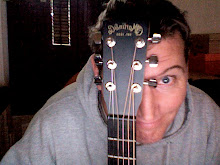Ah, the life of a front-runner. .. If the Letterman show's shot at the botox rumours wasn't enough, Republican campaign strategists are busy defining their line of attack against John Kerry after his performance in Tuesday's primares.
His remaining Democrat opponents, meanwhile, are working out how to best use their resources in upcoming contests, and how best to use an 'anti-Kerry' as opposed to an 'anti-Bush' message.
The president himself hits South Carolina amid growing concern about his ability to defuse the WMD/intel row.
As for this weekend's contests, Kerry has apparently tightened his grip on Michigan and Washington state.
John Edwards' southern strategy continues to emphasise Virginia - where he could pick up some backing from former supporters of Joe Lieberman - and Tennessee.
Wesley Clark, fresh from his victory in Oklahoma, is denying his campaign has run into money trouble, and is concentrating his fire on Washington insiders Kerry and Edwards.
Howard Dean, meanwhile, seems to be drawing a line in the snow in Wisconsin.
There's an interesting report out today from the Institute for Politics, Democracy and the Internet at GWU looking at the influence of online political activists in the campaign so far.
Here's an extract:
Online Political Citizens are not isolated cyber-geeks, as the media has portrayed them. On the contrary, OPCs are nearly seven times more likely than average citizens to serve as opinion leaders among their friends, relatives and colleagues.
OPCs are disproportionately “Influentials,” the Americans who “tell their neighbors what to buy, which politicians to support, and where to vacation,” according to Ed Keller and Jon Berry, authors of the book, The Influentials.
Normally, 10% of Americans qualify as Influentials.
Our study found that 69% of Online Political Citizens are Influentials. About 44% of Online Political Citizens have not been politically involved in the past in typical ways—they have not previously worked for a campaign, made a campaign donation or attended a campaign event.
His remaining Democrat opponents, meanwhile, are working out how to best use their resources in upcoming contests, and how best to use an 'anti-Kerry' as opposed to an 'anti-Bush' message.
The president himself hits South Carolina amid growing concern about his ability to defuse the WMD/intel row.
As for this weekend's contests, Kerry has apparently tightened his grip on Michigan and Washington state.
John Edwards' southern strategy continues to emphasise Virginia - where he could pick up some backing from former supporters of Joe Lieberman - and Tennessee.
Wesley Clark, fresh from his victory in Oklahoma, is denying his campaign has run into money trouble, and is concentrating his fire on Washington insiders Kerry and Edwards.
Howard Dean, meanwhile, seems to be drawing a line in the snow in Wisconsin.
There's an interesting report out today from the Institute for Politics, Democracy and the Internet at GWU looking at the influence of online political activists in the campaign so far.
Here's an extract:
Online Political Citizens are not isolated cyber-geeks, as the media has portrayed them. On the contrary, OPCs are nearly seven times more likely than average citizens to serve as opinion leaders among their friends, relatives and colleagues.
OPCs are disproportionately “Influentials,” the Americans who “tell their neighbors what to buy, which politicians to support, and where to vacation,” according to Ed Keller and Jon Berry, authors of the book, The Influentials.
Normally, 10% of Americans qualify as Influentials.
Our study found that 69% of Online Political Citizens are Influentials. About 44% of Online Political Citizens have not been politically involved in the past in typical ways—they have not previously worked for a campaign, made a campaign donation or attended a campaign event.


0 Comments:
Post a Comment
<< Home